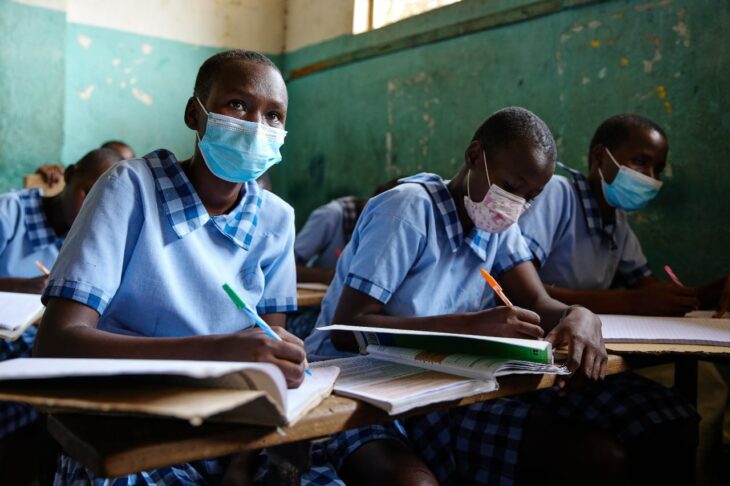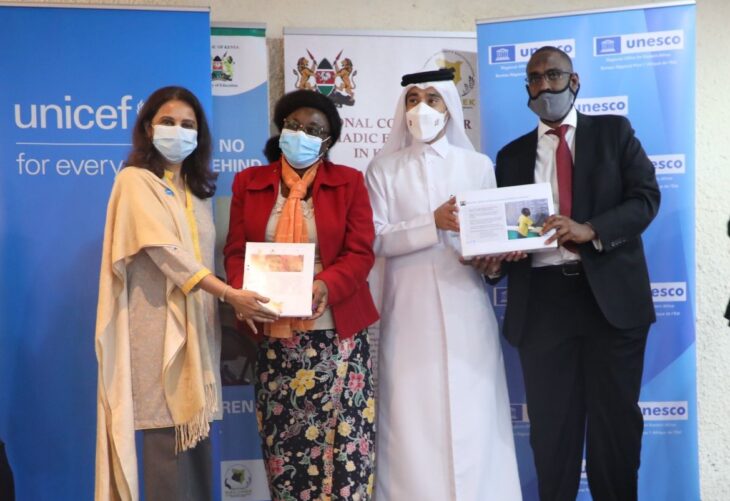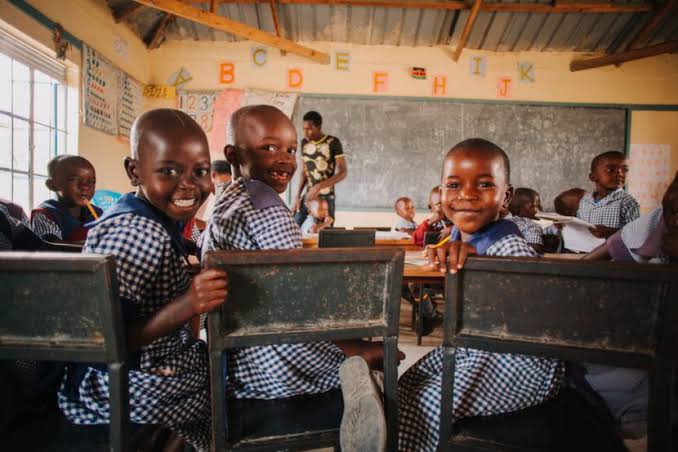NAIROBI,Kenya, Oct, 19 – The United Nations Children’s Fund (UNICEF), National Council for Nomadic Education in Kenya (NACONEK), The United Nations Educational,Scientific and Cultural Organization (UNESCO), Education Above All Foundation, The Ministry of Education among others in a report titled: ’The National Out of School Children Study Report and the Operation Come Back to School Program’ has revealed a dire state of learning in the country.
According to the report, an estimated 2.4 million children between the age of 4 and 17 have either never been to school or dropped out before completing their studies. This is based on available statistics by the Kenya Population and Housing Census in 2019 that informed part of the report.
Those critically affected are children mostly in Arid and Semi Arid Lands, also known as ASAL counties in Mandera, Wajir, Garissa, Marsabit, Turkana, Samburu, Laikipia, Kajiado, Narok, Kitui, Makueni, KIlifi, Baringo,Lamu, Kwale, Isiolo,Tana River and West Pokot.
Also featured in the study were: Nairobi,Vihiga, Kakamega, Busia and Trans Nzoia.
The report resolved to assess the magnitude of out of school children, youth and adolescents, identifying where they are in order to provide alternative education while monitoring the implementation of the sustainable development goals on the out of school rate compared to other countries globally.
This targeted children that do not attend school or are at risk of dropping out based on several reasons.
Out of School Children – Affected Counties
Mandera county tops the list with the highest number of Out of School Children at 170,000. According to the report, the county continues to record a high rate of unemployment and poverty.
The reasons for the high number of out of school children however include, proximity to the Somalia and Ethiopia border where flareups of violence are at times reported, rampant duksi and madrassa schools, vulnerability to extremism and even the nomadic lifestyle.

Garissa came second with 166,010 while Wajir was third out of 16 counties with 152,130 out of school children.
The report also cited rampant duksi and madrassa schools as well as regular migrations in search of water and pasture in the wake of the glaring drought that has plagued the region in recent years.
“It is my hope that parents and caregivers will uphold their parental roles to ensure all school going children access, transit and complete education at all levels. It is quite sad from the statistics provided that some counties in ASALs are home to high numbers of out of school children,” Said Professor Fatuma Chege, PS CBC implementation.
In counties such as Isiolo, Marsabit, Baringo, Samburu, Laikipia,Narok and Kwale, outdated cultural practices such as cattle rustling and banditry, susceptibility to extremism, drug abuse, teenage pregnancies, child prostitution and even early childhood marriages were blamed for the high number of out of school children.
Surprisingly, the country’s capital Nairobi also featured with findings revealing that the provision of basic education in urban informal settlements was poorly organised thus less equitable to children in those areas.
In Bungoma county, its proximity to the border with Uganda and frequency of cross border small trades, collapse of local industries, insecurity provoked by emerging boda boda business operators, banditry towards Mt. Elgon Region, teenage pregnancies and cultural practices such as male Circumcision ceremonies were blamed for the high number of out of school children.
Operation Come Back To School
Kenya has ratified several international treaties that protect the right to education which form part of the country’s laws.
The nation’s Constitution, in Article 53 (1) (b) state that every child has a right to free and compulsory basic education while Article 55 (a) states that, the State shall take measures, including affirmative action programmes, to ensure that the youth access relevant education and training.
Minorities and marginalized groups under Article 56 (b) have a right to be provided with special opportunities in the field of education.
In a bid to ensure children receive the proper education, the report also recommended and is in the process of implementing phase two of, ‘Operation Come Back to School’ Which seeks to enroll 250,000 children, of whom, 50 per cent are boys and 50 per cent girls. – As well as 5 per cent of children with disability who are out of school, to access quality basic education.
The first phase enrolled almost 350,000 out-of-school children from 11 counties between 2015 and 2019.
“I am also aware that some of the interventions have commenced like the dissemination of National Re-entry Guidelines, Mentorship Policy and provision of psychosocial support to learners rejoining school after dropping out,” Said Professor Chege.
The report also recommended among others: the enhancing of social communication and behaviour change interventions nationwide, improving staffing levels across all levels of education with a target focus on counties with historically high student,teacher ratio to ensure quality education, tracking the locations and efficiency of ‘mobile schools’ and investigate incentive for teachers.

Establish learning centres in Arid and Semi-Arid areas to reduce distance from school and preparing for future disruptions by introducing innovative approaches to teaching and learning.
“I encourage you to engage this on the ground particularly those on the county levels, governors and county education officers..I look forward to visiting the projects together with ambassadors and hearing about your achievements,” Jabor Bin Ali Al-Dosari , Qatar, Ambassador To Kenya
“I think this programme will transform lives…And hopefully more lives will be transformed. We need to see, families and communities rallying, coming together and identify those out of school children and ensuring they do come to school and stay in school in realising their aspirations and dreams,” Said Maniza Zaman, UNICEF,Representatives.
The ministry of education has meanwhile called on stakeholders to also embrace the Government’s National Re-entry Guidelines in ensuring all children go back to school.
Want to send us a story? Contact Shahidi News Tel: +254115512797 (Mobile & WhatsApp)


